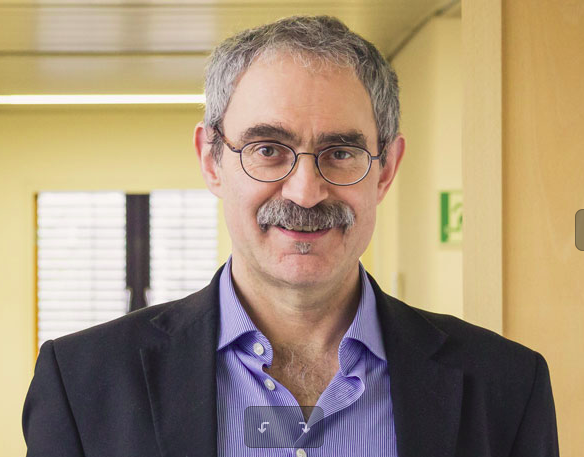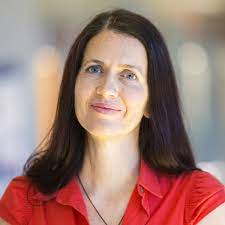ICON 2021: 18th International Conferenceon Natural Language ProcessingDecember 16-19Organized byNLP Association IndiaCentre for Natural Language ProcessingDepartment of Computer Science and EngineeringNational Institute of Technology Silchar |
Quick Links
Welcome to ICON 2021!
Keynote Talks
 Prof. Josef van Genabith
Prof. Josef van GenabithTitle of the talk: TBU
BIOGRAPHY: Prof. Josef van Genabith is currently Scientific Director of Multilingual Technologies at the German Research Centre for Artificial Intelligence (DFKI) and Full Professor and Chair of Translation-Oriented Language Technologies at the University of Saarland, Germany. He was the founding Director of the Centre for Next Generation Localisation (CNGL, now ADAPT), in Dublin, Ireland, and a Professor in the School of Computing at Dublin City University (DCU). He was Principal Investigator for a Science Foundation Ireland (SFI)- and two Enterprise Ireland (EI)-funded Basic Research grants and was awarded an SFI Principal Investigatorship. He was awarded an IRCSET planning grant to lead a consortium of six Irish universities (DCU, UCD, TCD, DIT, NUIM, UL) and two industrial partners (IBM and Microsoft) to draft a Graduate School in Speech and Language Technology. He has a special interest in Multilingual technologies including machine translation, language understanding and language generation.
 Prof. Philip Resnik
Prof. Philip ResnikTitle of the talk: TBU
BIOGRAPHY: Prof. Philip Resnik holds a joint appointment as Professor in the University of Maryland Institute for Advanced Computer Studies and the Department of Linguistics, and an Affiliate Professor appointment in Computer Science. He earned his bachelor's degree in Computer Science at Harvard in 1987, and his Ph.D. in Computer and Information Science at University of Pennsylvania in 1993, and joined the University of Maryland faculty in 1996. His industry experience prior to entering academia includes time in R&D at Bolt Beranek and Newman, IBM T.J. Watson Research Center, and Sun Microsystems Laboratories. Resnik's research focuses on computational modeling of language that brings together linguistic knowledge, domain expertise, and data-driven machine learning methods, with an emphasis on applications in computational social science as well as experience in multilingual text analysis and machine translation, and scientific interests in computational cognitive neuroscience. He holds two patents and has authored or co-authored more than 100 peer-reviewed articles and conference papers. At various times his work has been highlighted in Newsweek, The Economist, New Scientist, and on National Public Radio, and he has been a repeat organizer and panelist at SXSW Interactive. Outside academia, Resnik was a technical co-founder of CodeRyte (clinical natural language processing, acquired in 2012 by 3M Health Information Systems), and is an advisor to Converseon (social strategy and analytics), FiscalNote (machine learning and analytics for government relations), and SoloSegment (web site search and content optimization).
 Prof. Rada Mihalcea
Prof. Rada MihalceaTitle of the talk: TBU
BIOGRAPHY: Prof. Rada Mihalcea is currently a Professor of computer science and engineering with the University of Michigan and the Director of the Michigan Artificial Intelligence Laboratory. Her research interests are in lexical semantics, multilingual NLP, and computational social sciences. She serves or has served on the editorial boards of the Journals of Computational Linguistics, the Language Resources and Evaluations, the Natural Language Engineering, the Journal of Artificial Intelligence Research, the IEEE Transactions on Affective Computing, and the Transactions of the Association for Computational Linguistics. She was the Program Co-Chair for EMNLP 2009 and ACL 2011, and the General Chair for NAACL 2015 and *SEM 2019. She currently serves as the ACL Vice-President Elect. She is a recipient of the NSF CAREER Award (2008) and a Presidential Early Career Award for Scientists and Engineers awarded by President Obama (2009). In 2013, she was made an honorary citizen of her hometown of Cluj-Napoca, Romania.
 Associate Prof. Louis-Philippe Morency
Associate Prof. Louis-Philippe MorencyTitle of the talk: TBU
BIOGRAPHY: Louis-Philippe Morency is currently a tenure-track Faculty at CMU Language Technology Institute where he lead the Multimodal Communication and Machine Learning Laboratory (MultiComp Lab). He was previously Research Faculty at USC Computer Science Department. He received my Ph.D. in Computer Science from MIT Computer Science and Artificial Intelligence Laboratory. His research focuses on building the computational foundations to enable computers with the abilities to analyze, recognize and predict subtle human communicative behaviors during social interactions. Central to this research effort is the technical challenge of multimodal machine learning: mathematical foundation to study heterogeneous multimodal data and the contingency often found between modalities. This multi-disciplinary research topic overlaps the fields of multimodal interaction, social psychology, computer vision, machine learning and artificial intelligence, and has many applications in areas as diverse as medicine, robotics and education.
Call for Papers
The eighteenth International Conference on Natural Language Processing (ICON-2021) will be held at NIT Silchar, India during December 16-19, 2021. The ICON Conference series is a forum for promoting interaction among researchers in the field of Natural Language Processing (NLP) and Computational linguistics (CL) in India and abroad. The main conference is on December 17-18, 2021. This will be preceded by one day of pre-conference tutorials / workshops on December 16, 2021 and one day of post conference shared tasks / tools / demos on December 19, 2021.
Topics |
Call for Tutorials / Workshops
Proposals are invited for pre-conference tutorials/workshops. Tutorials/Workshops can be of half-day or full-day duration. The proposal should be presented in the form of an extended abstract (1-2 pages) as per the ICON 2021 template (ACL template). This should contain a topical outline of the content, description of the proposers and their qualifications relating to the tutorial content.
Proposals for Tutorial/Workshop can be submitted at this link. Send tutorial/workshop proposals to the ICON-2021 Secretariat by email to icon2021nitsilchar@gmail.com. For further information, please refer to the Conference URL or contact the ICON-2021 Secretariat.
Call for Doctoral Consortium
The ICON organising Committee pleased to call for papers for the 3rd Doctoral Consortium. This event extends an opportunity for doctoral candidates to present and discuss their research with a panel of experts. The discussion would include a feedback on the evolution and progress of their research. It also helps them to identify the roadmap and additional studies, which could help refine the shape of their doctoral thesis. The doctoral consortium will be a one-day or half day event being organised on December 16, 2021, as part of the ICON-2021 conference at the National Institute of Technology Silchar (NIT Silchar). The applicants are required to submit a two-page extended abstract of their PhD research work. Submit your abstracts at this link . The shortlisted candidates would be invited to the consortium where they are required to present a summary of their research. Each candidate will be given 30 minutes for the presentation, which will be followed by a discussion of 15 minutes, led by a panel of experts. Prospective doctoral students from language technologies related disciplines are invited to apply. The selection of participants will be based on the submitted abstracts.
Guidelines
The invitation is open to all participants of ICON 2021. The applicants are required to submit an extended two-page abstract on their ongoing doctoral research. The submission can be extended to a maximum of two pages including all text, figures and tables, plus an additional third page exclusively for references. The submissions must follow the ICON template provided in the author's kit.The abstracts may incorporate published and in-progress work from the authors. Submissions are expected to present a fair picture of the research undertaken towards the thesis. Participants are advised to refrain from submitting a shorter version of their conference papers. Submissions must have the participant as the sole author. Acknowledgements to their supervisors, supporting agencies/bodies, and contributors to thework, can be made in a separate section.
The submission must highlight the following: The motivation of the research; Key issues identified/addressed; Major contributions; Methodologies, Experiments; Discussion of results; Future plans and Roadmap for the thesis.
Call for Shared Tasks /Tools / Demos
Proposals are invited for post-conference shared tasks / tools / demos. Shared Tasks /Tools / Demos can be of half-day or full-day duration. The proposal should be presented in the form of an extended abstract (1-2 pages) as per the ICON 2021 template (ACL template). This should contain a topical outline of the content, description of the proposers and their qualifications relating to the shared tasks / tools / demos content.
Proposals for Shared Tasks /Tools / Demos can be submitted at this link. Send shared task / tool / demo proposals to the ICON-2021 Secretariat by email to icon2021nitsilchar@gmail.com. For further information, please refer to the Conference URL or contact the ICON-2021 Secretariat.
Important Dates
| Event | Date |
|---|---|
|
Paper Submission Deadline |
October 15, 2021 |
|
Paper Acceptance Notification |
November 15, 2021 |
|
Paper Camera Ready Paper Submission |
December 5, 2021 |
|
Doctoral Consortium Deadline |
October 15, 2021 |
|
Paper Acceptance Notification (Doctoral Consortium) |
November 15, 2021 |
|
Workshop Proposal Submission |
September 15, 2021 |
|
Workshop Acceptance Notification |
September 30, 2021 |
|
Tutorial Proposal Submission |
October 10, 2021 |
|
Tutorial Acceptance Notification |
October 30, 2021 |
|
Shared Task /Tool/ Demo Proposal Submission |
September 15, 2021 |
|
Shared Task /Tool/ Demo Acceptance Notification |
September 30, 2021 |
|
Conference |
December 16-19, 2021 |
